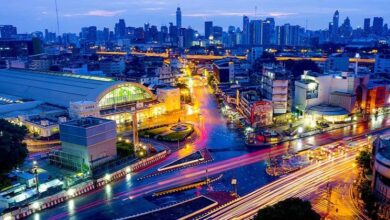When it comes to renting a warehouse in Sharjah, understanding zoning laws is essential for any business looking to avoid legal complications and ensure operational success. Sharjah’s real estate market has evolved significantly in recent years, offering more options for industrial tenants, but local regulations still play a central role in determining how and where you can operate. Whether you’re a small business owner, a logistics provider, or a manufacturer, this guide will help you navigate the essential zoning rules and requirements before signing any lease for a warehouse for rent in Sharjah.
Why Are Zoning Laws Important and What Are They?
Regulations known as zoning rules specify the uses permitted for particular properties or geographic areas. In Sharjah, as in other Emirates, land is divided into various zones such as residential, commercial, industrial, and mixed-use. For tenants looking for warehouses, understanding industrial zoning is crucial because each zone has strict guidelines on what activities are allowed.
Failing to comply with zoning laws can lead to fines, closure of operations, or termination of your lease. That’s why it’s important to consult both local authorities and a trusted real estate company in Dubai or Sharjah with experience in industrial properties.
Types of Industrial Zones in Sharjah
Sharjah has designated several key industrial areas, each governed by specific zoning laws. Some of the most prominent include:
- Industrial Areas 1 to 18: These zones are located in the heart of the city and are ideal for small to medium-sized enterprises. Activities permitted include light manufacturing, storage, logistics, and certain types of workshops.
- Al Sajaa Industrial Area: Known for heavy industry and large-scale warehousing, this zone allows operations that involve machinery, fabrication, and heavy vehicle traffic.
- Hamriyah Free Zone: A unique economic area with its own set of zoning laws. While it offers flexibility and tax incentives, it still enforces strict compliance rules related to land use, environmental safety, and labor accommodations.
Each of these zones has specific rules regarding noise, pollution, building height, parking requirements, and access roads. Before choosing a warehouse for rent in Sharjah, tenants must confirm that their intended business activity is permissible in that zone.
Key Zoning Considerations for Tenants
1. Permitted Activities
Tenants must ensure that the warehouse is located in a zone where their business activity is allowed. For example, a food packaging business may not be permitted in a heavy industrial area due to hygiene regulations.
2. Building Compliance
Zoning laws also affect the building itself. Some warehouses may not be approved for certain uses unless modified or upgraded. Issues such as ceiling height, fire exits, ventilation, and loading docks must be compliant with Sharjah Municipality standards.
3. Licensing and Approvals
The Sharjah Municipality and the Sharjah Economic Development Department (SEDD) must give their approvals before you can begin operations. Your tenancy contract and the intended activity must align with the zoning code to secure these licenses.
A real estate company in Dubai that specializes in Sharjah properties can assist with navigating these bureaucratic steps, ensuring you avoid delays and penalties.
4. Proximity to Infrastructure
Industrial zones often have restrictions related to transportation and logistics. Some zones require easy access to highways or ports, while others are closer to labor accommodations. Understanding these limitations can help in selecting a strategic location that complies with zoning requirements and also supports operational efficiency.
5. Environmental and Safety Regulations
Zoning laws often include guidelines on emissions, waste disposal, and safety protocols. Businesses handling chemicals, for example, may need additional approvals from the environment and safety departments. Violations can result in steep penalties or even eviction.
Benefits of Working with a Dubai Real Estate Company
While many tenants look specifically for a warehouse for rent in Sharjah, the best results often come from working with a real estate company in Dubai that has regional expertise. These firms typically have a broader network, up-to-date information on regulatory changes, and strong relationships with local authorities and landlords.
Such companies can help tenants:
- Determine which warehouse choices are suitable depending on zoning regulations.
- Verify compliance of existing buildings.
- Handle paperwork for municipal approvals and licenses.
- Negotiate lease terms that protect tenant interests.
This kind of professional support is invaluable, especially for international investors or businesses expanding into Sharjah for the first time.
Conclusion
Zoning laws in Sharjah are not just bureaucratic hurdles—they are essential rules that shape how, where, and when your business can operate legally and efficiently. From choosing the right industrial zone to ensuring building compliance and obtaining necessary approvals, tenants must approach the rental process with diligence and expert support.
If you’re in the market for a warehouse for rent in Sharjah, don’t take chances with zoning issues. Partner with a seasoned real estate company in Dubai that understands the industrial landscape of Sharjah and can guide you every step of the way. With the right approach, you can secure a warehouse that meets both your operational needs and legal obligations, paving the way for long-term business success.





